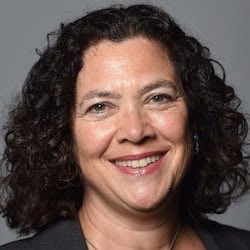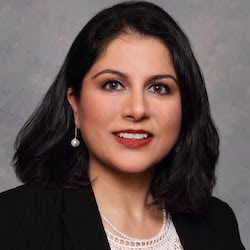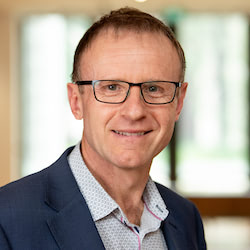Tech transfer leaders from around the world reflect on the learnings of 2022.

We asked a range of high-calibre investors and tech transfer leaders from around the world for their views on the past year and their predictions for the year ahead. The following insights are one segment of a multi-part series that also includes our annual data analysis, a look at initiatives launched by universities last year, the role of various forms of financing, comments on why staffing and deeptech were top of mind in 2022 and views on what 2023 may bring.

Moray Wright, chief executive of Parkwalk Advisors, notes complex macroeconomic conditions: “I think 2022 has been another tumultuous year following the volatility caused by the covid pandemic ebb and flowing around the world. It sounds trite to call the year ‘tumultuous’ with what is happening on the ground in Ukraine, however I will try to describe our view of the deep tech scene in the UK for this year.
“Obviously, the war created (or exacerbated) supply-side inflationary pressure around the world which belatedly led to interest rate rises which were generally too slow or small to control nascent inflation quickly enough. This created a vicious cycle which led to higher-still rates and the selloff in global equities, fixed income and (most) other asset classes. The Technology sector valuations were hit hard around the world.”

Keith Marmer, chief innovation and economic engagement officer at University of Utah, says: “As we emerge from a ‘post-covid’ economy, it is clear some of the impact of the pandemic was temporary while others were not. With tight public capital markets putting downward pressure on venture capital investors, I anticipate universities will face decisions on whether to increasingly invest their own resources into promising opportunities and keep these assets in-house longer than we’ve seen in the past. Startup companies continue to face challenges accessing funding from private capital markets. With this in mind, I believe we will see universities also increase investments in risk mitigation structures, including larger seed stage venture funds, increased entrepreneur engagement programs and pre-company technology accelerators.”

Karin Immergluck, associate vice-provost, Office of Technology Licensing, at Stanford University, remarks: “If I could sum up 2022 in two words, they would be “increasing complexity”. Multiple new high-profile research alliances, new accelerator programs, and new types of partnering deals at Stanford have created a more complicated landscape, but they make our work more intellectually stimulating and exciting. Yet, these complexities bring with them a host of challenges as well, particularly as we continue to try to figure out best practices for hybrid and remote work in the post-pandemic era.”

Marty Reid, interim executive director of the SETsquared Partnership, tells GUV: “2022 represented a major milestone for the SETsquared Partnership – it was our 20th anniversary as an enterprise partnership and innovation ecosystem of six universities. Like all anniversaries, it was an opportunity for reflection as well as making ambitious plans for the next 20 years of SETsquared.
“To mark the occasion, Warwick Economics and Development published an independent report into the impact of businesses supported by SETsquared. The report estimated that between 2002 and 2022, the total gross value added contribution of businesses supported by SETsquared is £15.7bn and that these companies have created 15,600 jobs. In addition, a total of £3.9bn of private and public investment has been raised by SETsquared member companies, with 70% of this investment being in the last five years.
“It’s a great illustration of the importance and potential of long-term, collaborative approaches to bring together entrepreneurial talent, university research and venturing communities, particularly as these companies are developing solutions to the major global challenges we face – from tackling chronic diseases to achieving net zero.”

Kalpa Vithalani, executive director of technology transfer at Marquette University, says: “As global challenges with water, energy, and health endure, collaborative academic-industry research and technology transfer have never been more important. I am passionate about helping connect ideas and inventors from Marquette with an ecosystem of corporate, entrepreneurial, legal and investment resources to build partnerships needed to create value and to benefit the public, through technology transfer and corporate engagement.
“Marquette nurtures and cultivates collaborative, holistic, and mutually beneficial and sustainable partnerships with companies. Our Office of University Relations reaches beyond traditional boundaries to bring together the best of what Marquette has to offer.”

Yasser Biaz, chief executive of UM6P Ventures, the venture fund of University Mohammed VI Polytechnic, reflects: “UM6P Ventures is an early-stage ventures firm for the advancement of entrepreneurship and innovation in Morocco and Africa. We ‘invest and build’ in pre-series A startups by way of two funds: digital transformation and deeptech ventures.”
“Amidst a challenging year on the global scene, 2022 was another record-setting year for startups raising capital in Africa. With some $4.8bn of capital invested across the different maturity stages – driven mainly by digital transformation/platform business models, the startup landscape has become very competitive for investors and programs alike. In contrast, the deeptech ventures space has remained inaccessible to investment, not for lack of appetite nor capital, but due to the perceived risks inherent in intellectual property origination, domain expertise specificity, and cost structure dimensionality.”

Tony Armstrong, president and CEO of IU Ventures, says: “2022 has been quite the year for change here at Indiana University. With a new president and many new vice-presidents, chancellors and deans, we’ve embarked on a university-wide strategic planning process. Our IUPUI campus in Indianapolis will become two in the near future, as Purdue will have a campus and IU-Indy will be established.”

Alastair Hick, chief commercialisation officer at Monash University, notes that tech transfer office Monash Innovation survived the early travel restrictions due to covid relatively unscathed and is continuing to build on a strong base of years of growth “and the development of a solid pipeline with good investor relationships, and a significant increase in capital availability. We are also moving our technology transfer and entrepreneurship activities closer together to capitalise on the increasing interest in innovation and entrepreneurship in the research community.”









